Cricket SA’s lack of reassurance amid extensive corruption probe is corrosive
by Neil Manthorp,
2016-02-09 06:00:19.0
CRICKET SA’s investigation into attempted match-fixing in last year’s Ram Slam domestic T20 competition is proceeding at full intensity and at full pace — which isn’t very quickly through no fault of the three-man team tasked with uncovering what happened.
The Pakistan match-fixing case involving Salman Butt, Mohammad Amir and Mohammad Asif took eight months. The Bangladesh Premier League case that involved Mohammad Ashraful took longer.
The "intermediary", former franchise and three-time Protea Gulam Bodi, has been charged with attempted corruption and banned for 20 years (five suspended) from all aspects of the game after having confessed his guilt.
Cricket SA subsequently adopted a no-comment policy concerning the other players and/or officials who may have been involved. Several cynics believed CE Haroon Lorgat had implied the matter may have come to an end when he suggested that Bodi’s nefarious activities had been "caught at the planning stage".
"That is outrageous and a complete slander on the men who have to clean this mess up," said a source close to the investigation.
"They have over 70 years of experience between them serving in various police forces and legal capacities around the world and to suggest that they would compromise their reputations by not doing a thorough and complete job is utterly ridiculous," the angry source told Business Day.
More than 40 witness statements have been collected, mostly from players who are presumed to be innocent, while dozens of bank accounts and many more phone records have been requisitioned, all of which take several weeks for the South African Police Service (SAPS) to procure.
The subsequent forensic examination is also not a quick process. It is not simply the passages in testimony that appear to be "red flags" that the investigators study.
Every answer has to be checked for corroboration or contradiction and tested against the evidence gathered.
"Like any complex investigation, if there are short cuts in the procedure, they will be scrutinised and exposed at some point."
The investigators must follow the procedure set out in the Anti-Corruption Code to the letter.
The evidence must be meticulously gathered and studied if the investigators are to do a comprehensive job.
"No doubt it is frustrating for the players, and some innocent names may be suffering, but their innocence needs to be proven beyond any doubt now so there won’t be any long-term, residual doubt," the source said.
Lorgat and Cricket SA trust the robust nature of the investigation and have the utmost belief it will be vindicated when the final report is completed.
Their fear that it could be complicated or compromised by any comment from them before it is completed is understandable — if stubborn and unrealistic.
It is an indictment of the organisation that there appears to be neither the will nor skill to offer immediate reassurance to the game’s participants and followers that all is in order.
It is understood that the three men handling the investigation on behalf of Cricket SA are Cricket SA anti-corruption officer Louis Cole, ICC anticorruption officer Africa Arrie de Beer, and independent lawyer David Becker.
Cole is a former senior policeman who has handled complex investigations and De Beer has extensive experience in working with the ICC on anticorruption matters.
Becker, a former ICC legal head, successfully prosecuted the Pakistan players Butt, Amir and Asif in 2010. He was among the strongest proponents of transparency and good governance at the ICC, assisting in Lord Woolf’s review on governance and speaking out in protest at the shameless hijacking of the world game by the "big three" nations — India, England and Australia.
It may be Cricket SA and the ICC to whom they will submit their findings, but it is their names that will appear at the bottom of the report in perpetuity. If there is a mistake, the ICC and Cricket SA will be able to say: "We appointed the best people we could, it’s not our fault."
"The provisions of the Anti-Corruption Code prevent Cricket SA from commenting on the details of the investigation. However, it might have been helpful for everyone if the parameters of their job had been made clear to the public and a public explanation given as to the process to be carried out," the source said.
Several "innocent" players will be charged — and punished — for the Anti-Corruption Code breach of "nondisclosure" of an attempt, or intention, to fix an aspect of a match. Upstanding, honest and respected players may receive as much as a year’s suspension for failing to report a conversation so brief or apparently absurd that they dismissed it summarily from their minds.
To many, this may seem harsh. But players are educated continuously on the threats and nature of fixing.
Moreover, if airline passengers can be fined and imprisoned for making jokes about bombs and hijacking, it doesn’t seem over the top for players to be given a year’s cooling off for not paying sufficient respect to a scourge that threatens not just their own livelihoods, but those of hundreds of thousands of other people across the world who make a living in the cricket industry.
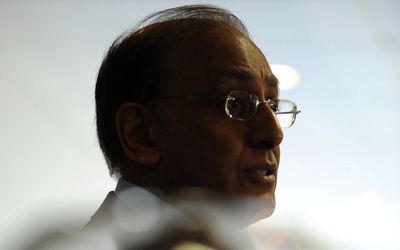
Haroon Lorgat. Picture: GALLO IMAGES/DUIF DU TOIT
CRICKET SA’s investigation into attempted match-fixing in last year’s Ram Slam domestic T20 competition is proceeding at full intensity and at full pace — which isn’t very quickly through no fault of the three-man team tasked with uncovering what happened.
The Pakistan match-fixing case involving Salman Butt, Mohammad Amir and Mohammad Asif took eight months. The Bangladesh Premier League case that involved Mohammad Ashraful took longer.
The "intermediary", former franchise and three-time Protea Gulam Bodi, has been charged with attempted corruption and banned for 20 years (five suspended) from all aspects of the game after having confessed his guilt.
Cricket SA subsequently adopted a no-comment policy concerning the other players and/or officials who may have been involved. Several cynics believed CE Haroon Lorgat had implied the matter may have come to an end when he suggested that Bodi’s nefarious activities had been "caught at the planning stage".
"That is outrageous and a complete slander on the men who have to clean this mess up," said a source close to the investigation.
"They have over 70 years of experience between them serving in various police forces and legal capacities around the world and to suggest that they would compromise their reputations by not doing a thorough and complete job is utterly ridiculous," the angry source told Business Day.
More than 40 witness statements have been collected, mostly from players who are presumed to be innocent, while dozens of bank accounts and many more phone records have been requisitioned, all of which take several weeks for the South African Police Service (SAPS) to procure.
The subsequent forensic examination is also not a quick process. It is not simply the passages in testimony that appear to be "red flags" that the investigators study.
Every answer has to be checked for corroboration or contradiction and tested against the evidence gathered.
"Like any complex investigation, if there are short cuts in the procedure, they will be scrutinised and exposed at some point."
The investigators must follow the procedure set out in the Anti-Corruption Code to the letter.
The evidence must be meticulously gathered and studied if the investigators are to do a comprehensive job.
"No doubt it is frustrating for the players, and some innocent names may be suffering, but their innocence needs to be proven beyond any doubt now so there won’t be any long-term, residual doubt," the source said.
Lorgat and Cricket SA trust the robust nature of the investigation and have the utmost belief it will be vindicated when the final report is completed.
Their fear that it could be complicated or compromised by any comment from them before it is completed is understandable — if stubborn and unrealistic.
It is an indictment of the organisation that there appears to be neither the will nor skill to offer immediate reassurance to the game’s participants and followers that all is in order.
It is understood that the three men handling the investigation on behalf of Cricket SA are Cricket SA anti-corruption officer Louis Cole, ICC anticorruption officer Africa Arrie de Beer, and independent lawyer David Becker.
Cole is a former senior policeman who has handled complex investigations and De Beer has extensive experience in working with the ICC on anticorruption matters.
Becker, a former ICC legal head, successfully prosecuted the Pakistan players Butt, Amir and Asif in 2010. He was among the strongest proponents of transparency and good governance at the ICC, assisting in Lord Woolf’s review on governance and speaking out in protest at the shameless hijacking of the world game by the "big three" nations — India, England and Australia.
It may be Cricket SA and the ICC to whom they will submit their findings, but it is their names that will appear at the bottom of the report in perpetuity. If there is a mistake, the ICC and Cricket SA will be able to say: "We appointed the best people we could, it’s not our fault."
"The provisions of the Anti-Corruption Code prevent Cricket SA from commenting on the details of the investigation. However, it might have been helpful for everyone if the parameters of their job had been made clear to the public and a public explanation given as to the process to be carried out," the source said.
Several "innocent" players will be charged — and punished — for the Anti-Corruption Code breach of "nondisclosure" of an attempt, or intention, to fix an aspect of a match. Upstanding, honest and respected players may receive as much as a year’s suspension for failing to report a conversation so brief or apparently absurd that they dismissed it summarily from their minds.
To many, this may seem harsh. But players are educated continuously on the threats and nature of fixing.
Moreover, if airline passengers can be fined and imprisoned for making jokes about bombs and hijacking, it doesn’t seem over the top for players to be given a year’s cooling off for not paying sufficient respect to a scourge that threatens not just their own livelihoods, but those of hundreds of thousands of other people across the world who make a living in the cricket industry.


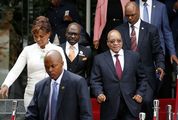
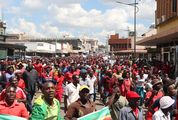
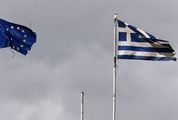
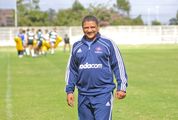













Change: 0.36%
Change: 0.45%
Change: -0.01%
Change: 0.92%
Change: -0.88%
Data supplied by Profile Data
Change: -0.34%
Change: -0.16%
Change: 0.36%
Change: 0.00%
Change: -0.10%
Data supplied by Profile Data
Change: 0.03%
Change: 0.44%
Change: 0.26%
Change: 0.60%
Change: 0.00%
Data supplied by Profile Data
Change: 0.53%
Change: -0.61%
Change: 0.43%
Change: 1.25%
Change: -2.53%
Data supplied by Profile Data